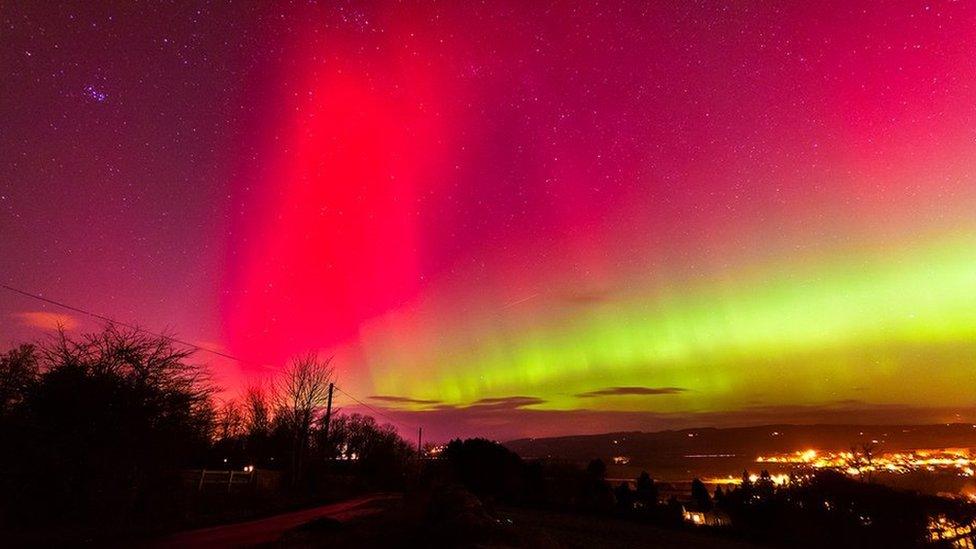Sky watchers thrilled by Northern Lights across Scotland
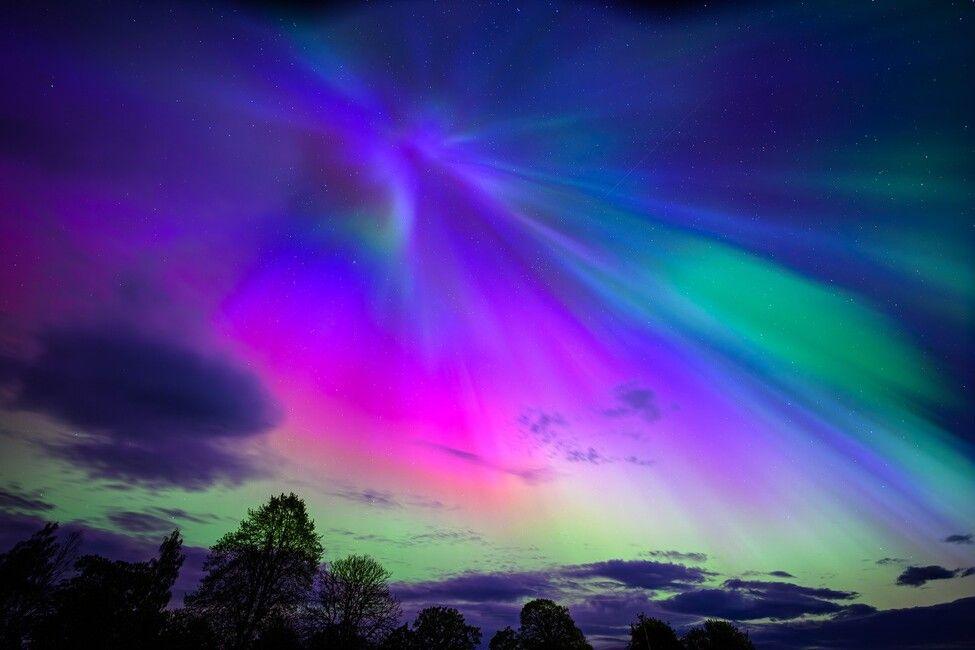
John Thomson snapped this beautiful picture of the aurora borealis near Aboyne.
- Published
The Northern Lights have made a rare appearance across Scotland and thrilled sky watchers across the country.
Pictures of the spectacular display, also known as aurora borealis, were widely shared on social media on Friday evening.
They could be seen after one of the strongest geomagnetic storms for years hit Earth, with the US National Oceanic and Atmospheric Administration (NOAA) issuing a rare solar storm warning.
Such storms increase the chances of seeing the natural phenomenon.
BBC Weather said clear skies made sightings possible from almost everywhere in the UK.
People in Northern Ireland, Scotland and northern parts of England usually have a higher likelihood.
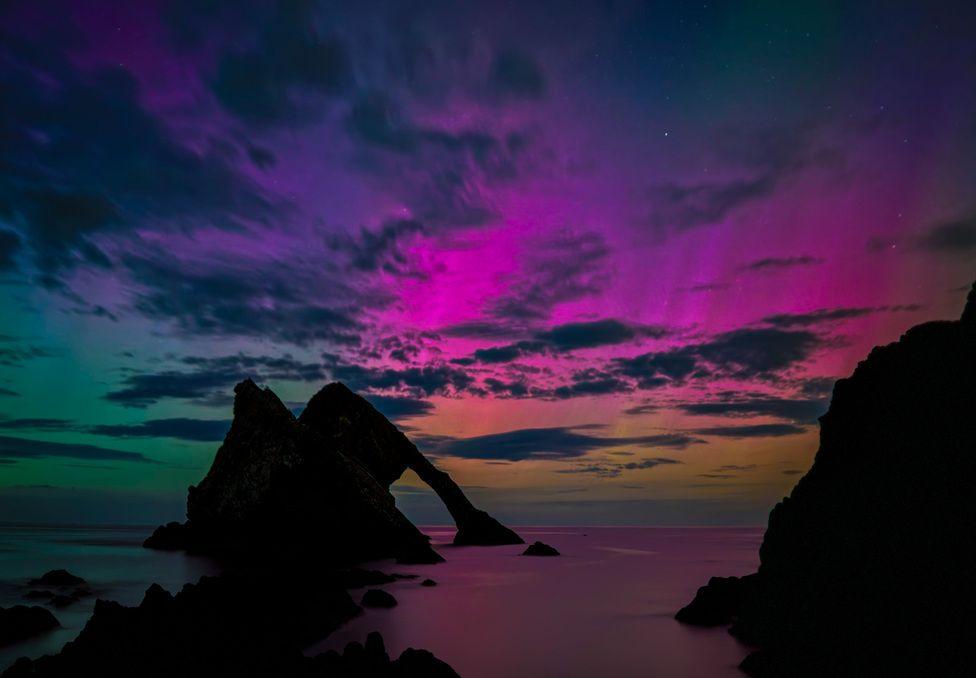
"What a show at Bow Fiddle Rock on Friday evening," said Claire Meadows. "Even looking south you could see overhead aurora."
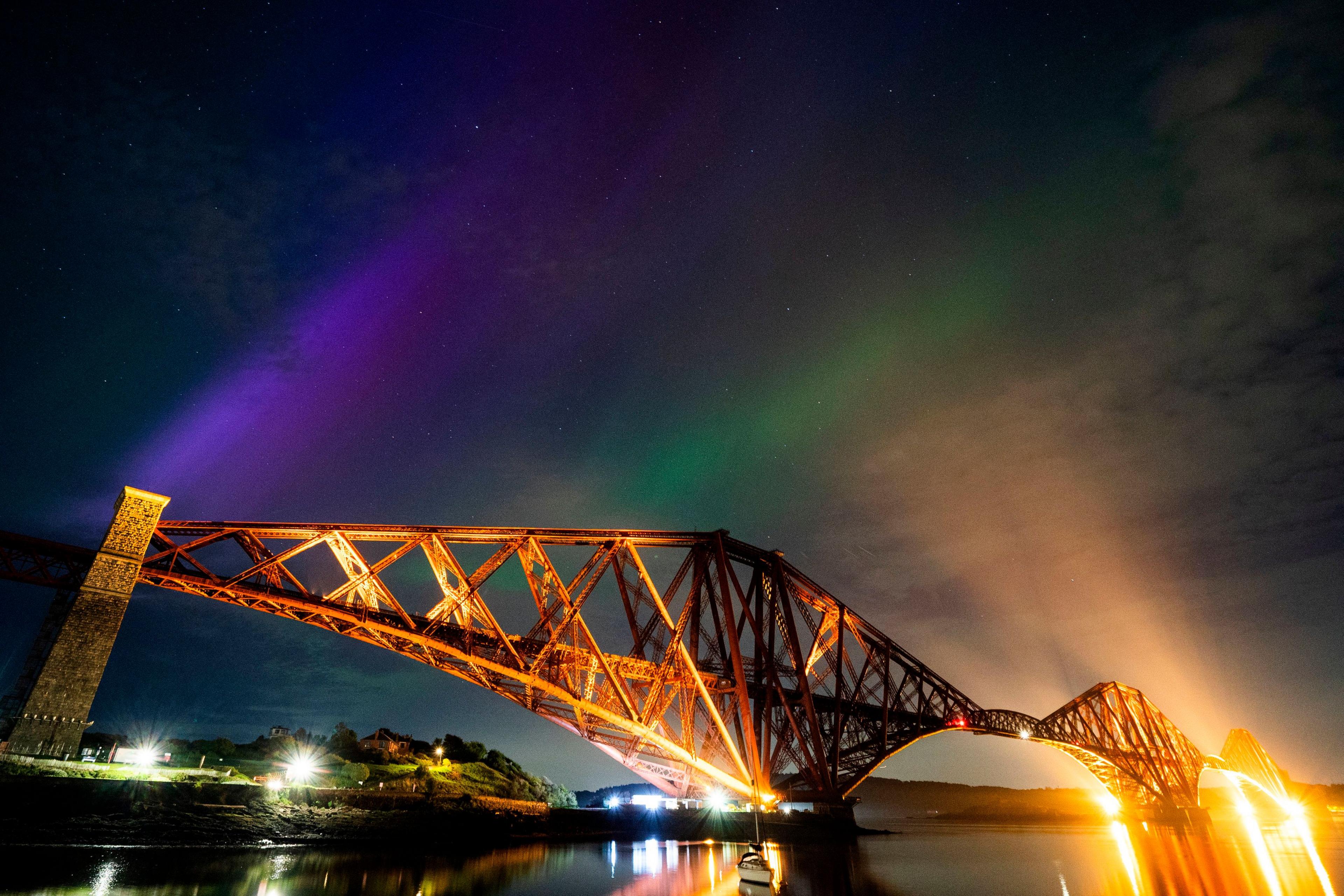
The northern lights, above the Forth Bridge at North Queensferry.
How can I see the Northern Lights tonight?
- Published11 May 2024
In pictures: Northern Lights dazzle around the world
- Published11 May 2024
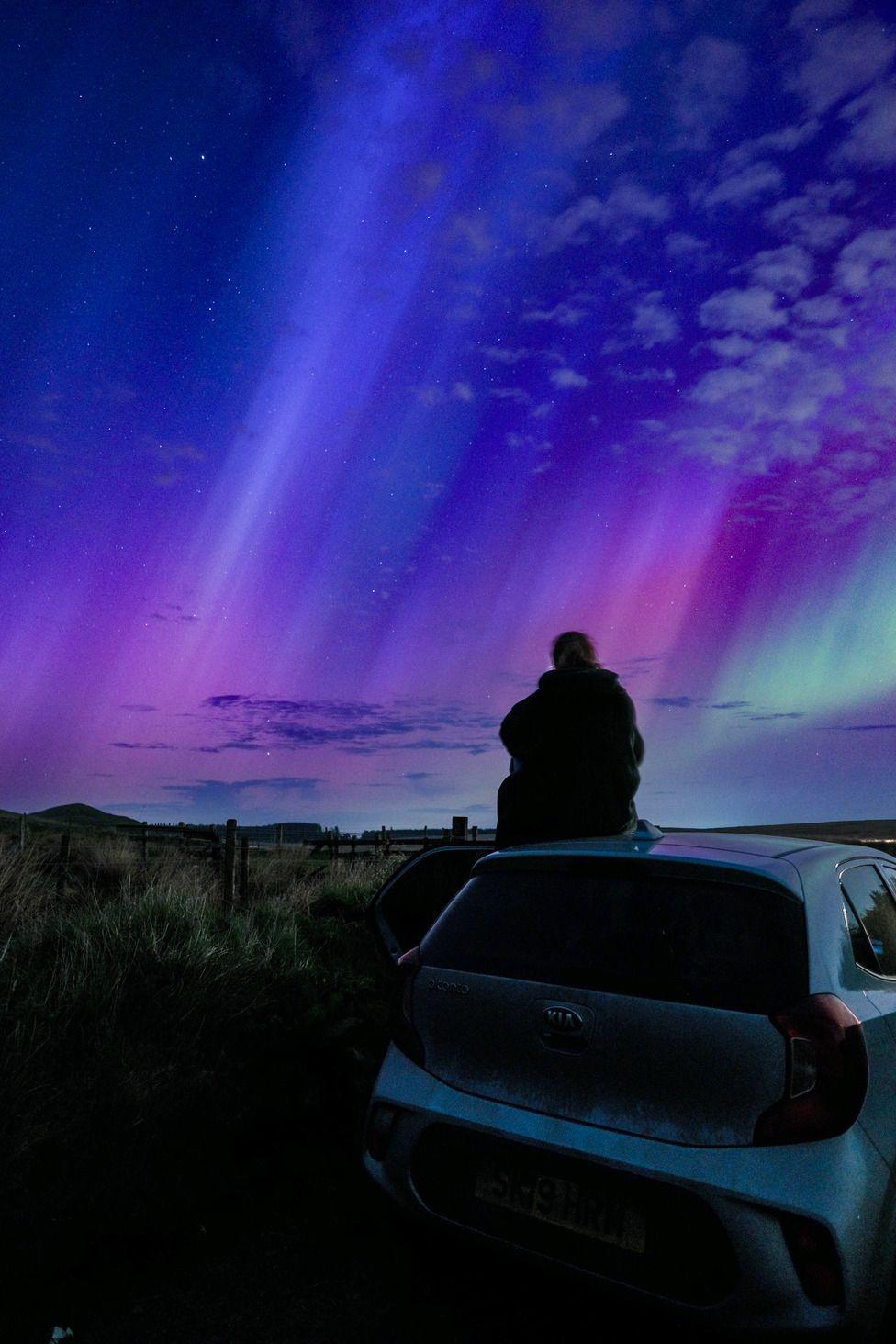
Bob Smart spotted someone enjoying the view from Knockhill.
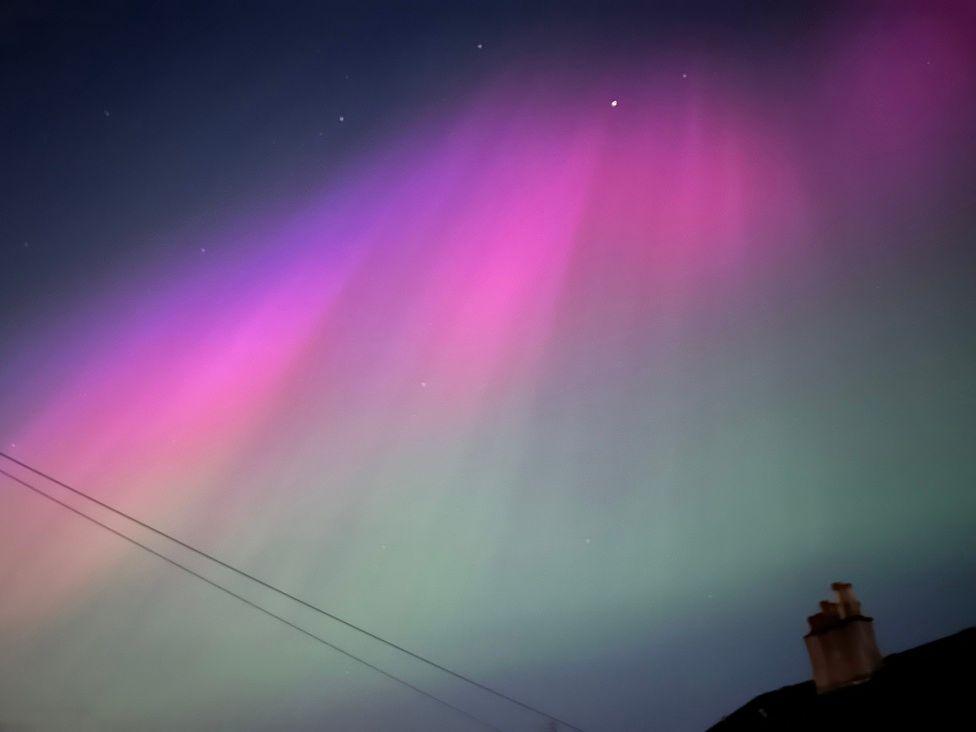
The BBC's Julie Anne Barnes snapped the aurora in Glasgow.
What are the Northern Lights?
The Northern Lights - or aurora borealis - appear as bright, swirling curtains of lights in the night sky and range in colour from green to pink and scarlet.
The Southern Lights - aurora australis - are seen in latitudes near the South Pole.
The lowest part of an aurora is typically 50 miles (80 km) above the Earth's surface. The highest part could be 150 miles (800km) above the Earth.
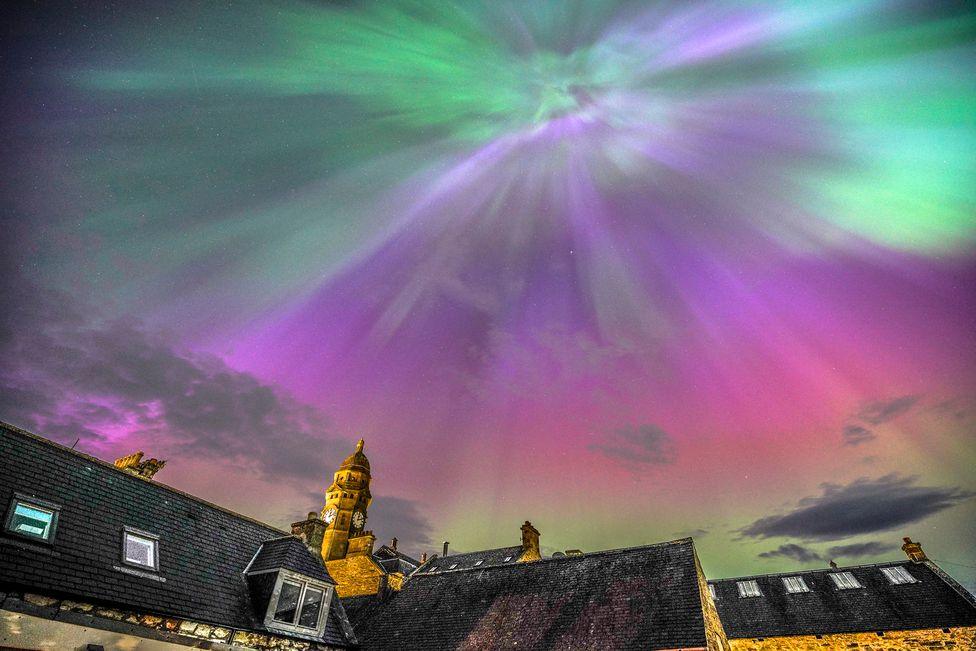
Mike Wragg said Keith in Moray was lit up with an amazing display of the Northern Lights.
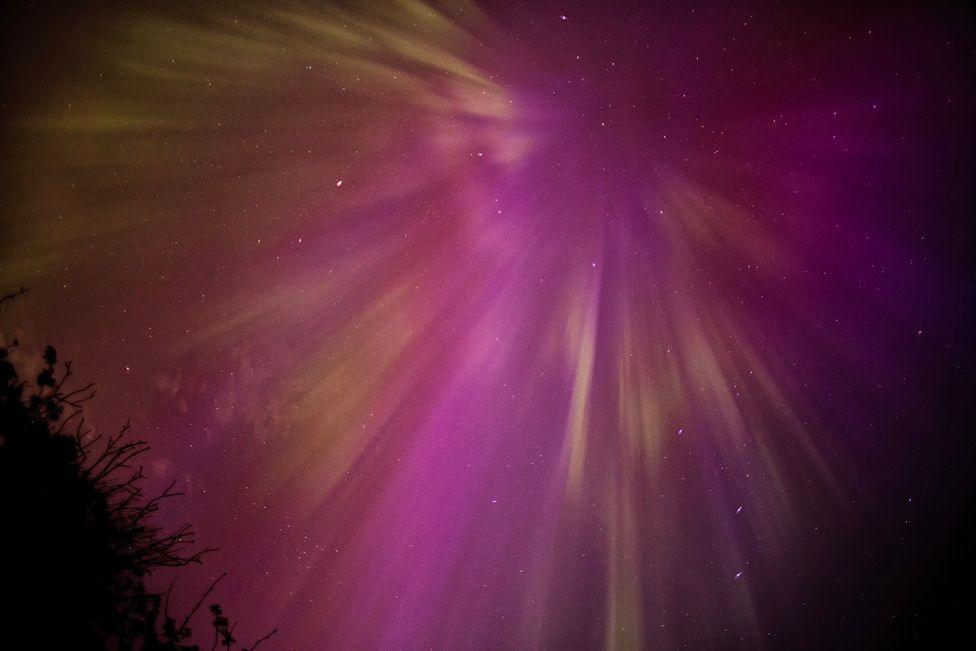
Norman Shulman captured the spectacular display directly overhead in Newton Mearns.
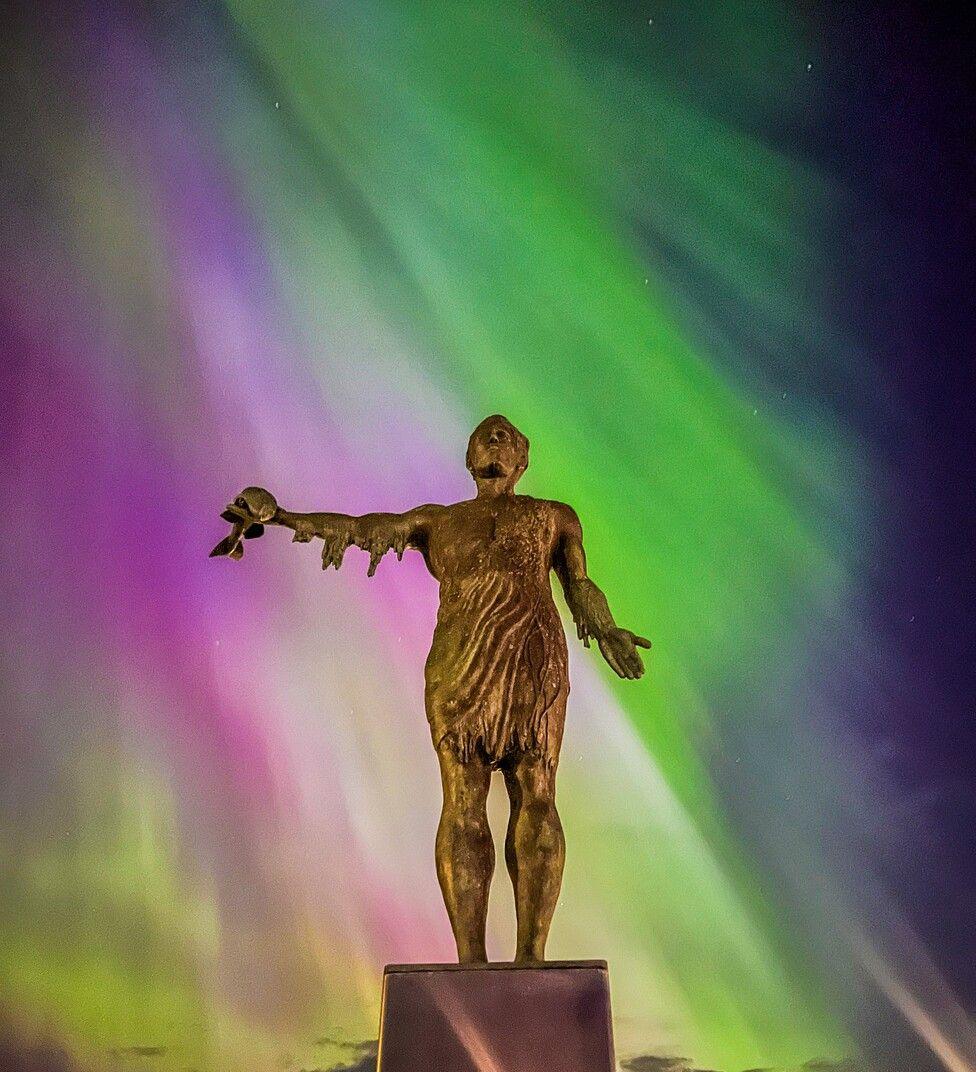
Paul Steven snapped this stunning picture of the lights behind the Seafarers Memorial in Wick
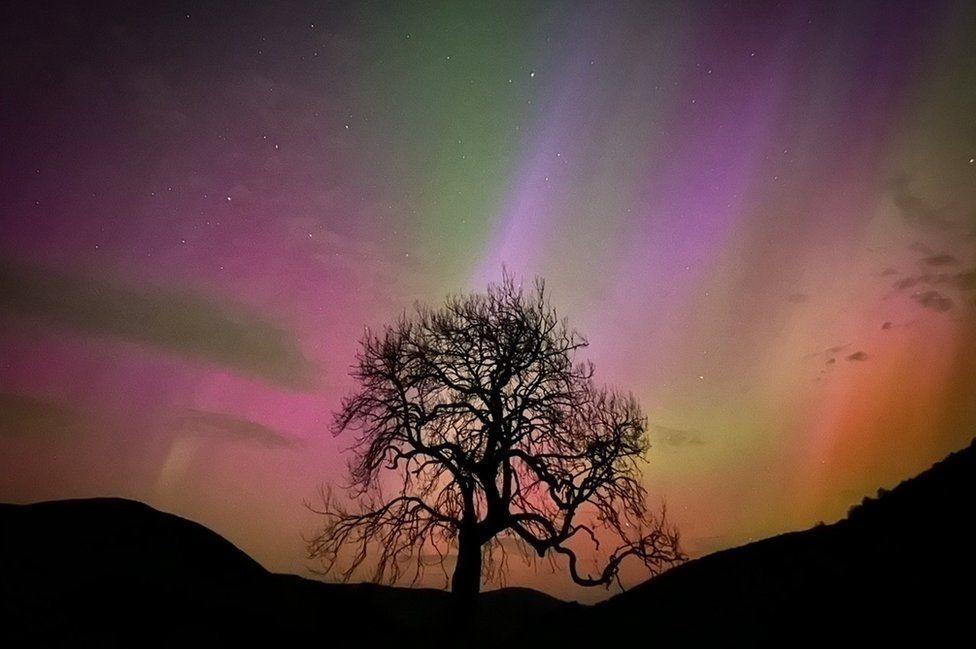
The aurora backlit the Frandy treet in Glendevon in this photograph by Richard Harvey
What causes the Northern Lights?
Both the Northern and Southern Lights are caused by charged particles from the sun hitting gases in the Earth’s atmosphere.
They occur around the North Pole when the solar wind carrying the particles interacts with the Earth’s magnetic field.
The most impressive auroras occur when the Sun emits really large clouds of particles called "coronal mass ejections".
"Picture this as a big sneeze by the Sun," says Dr Affelia Wibisono, from the Royal Observatory in Greenwich. "It can contain up to a million tonnes of charged particles.”
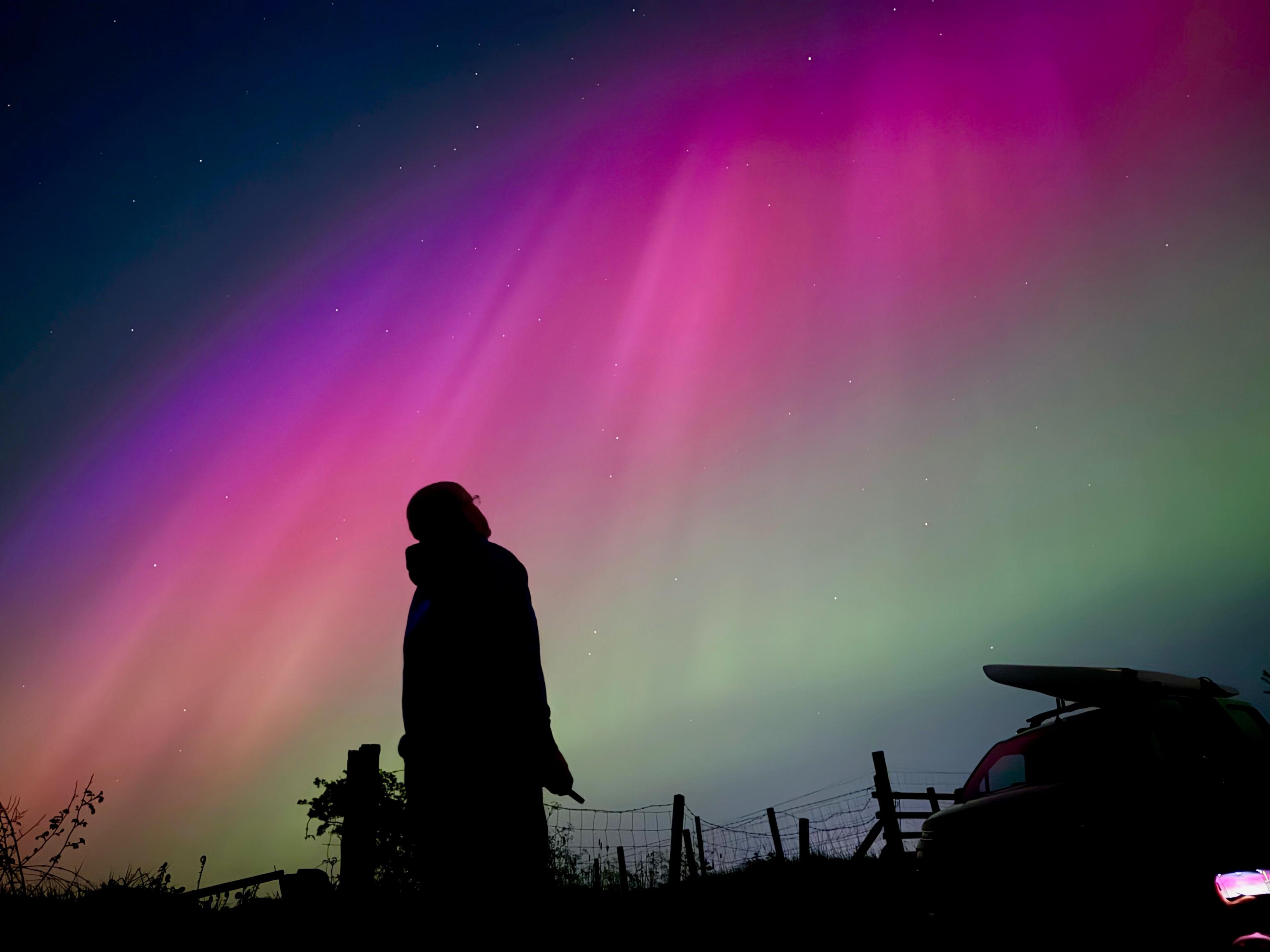
Angela Kerr said onlookers were "in awe" of the lights near Lochwinnoch.
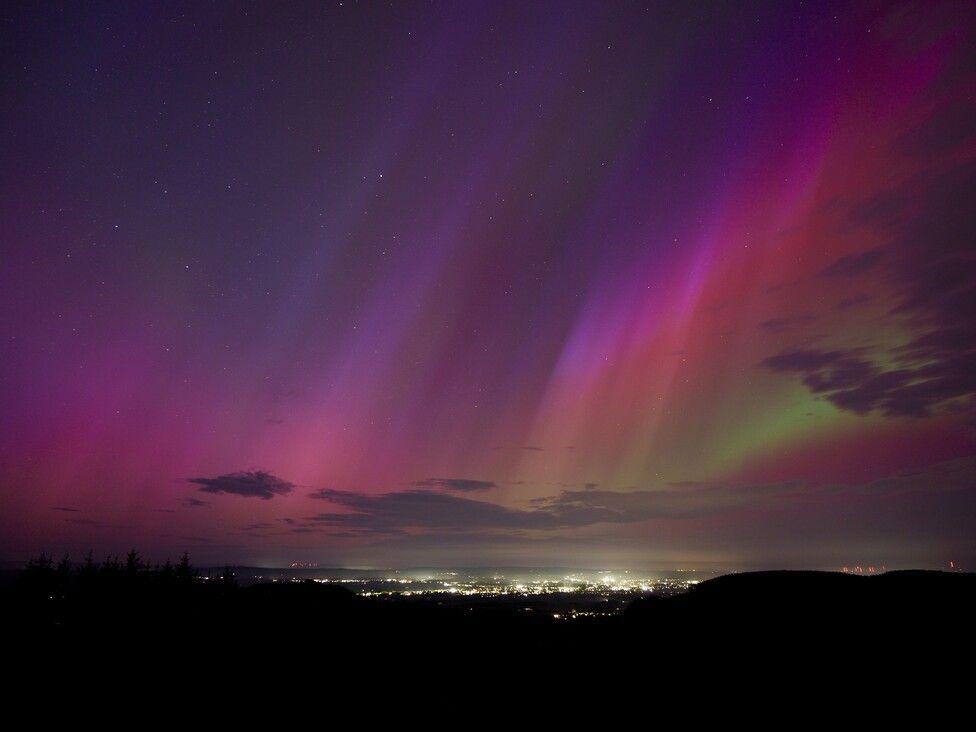
Frank Roscoe captured the aurora over Dumfries from See Morris Hill.
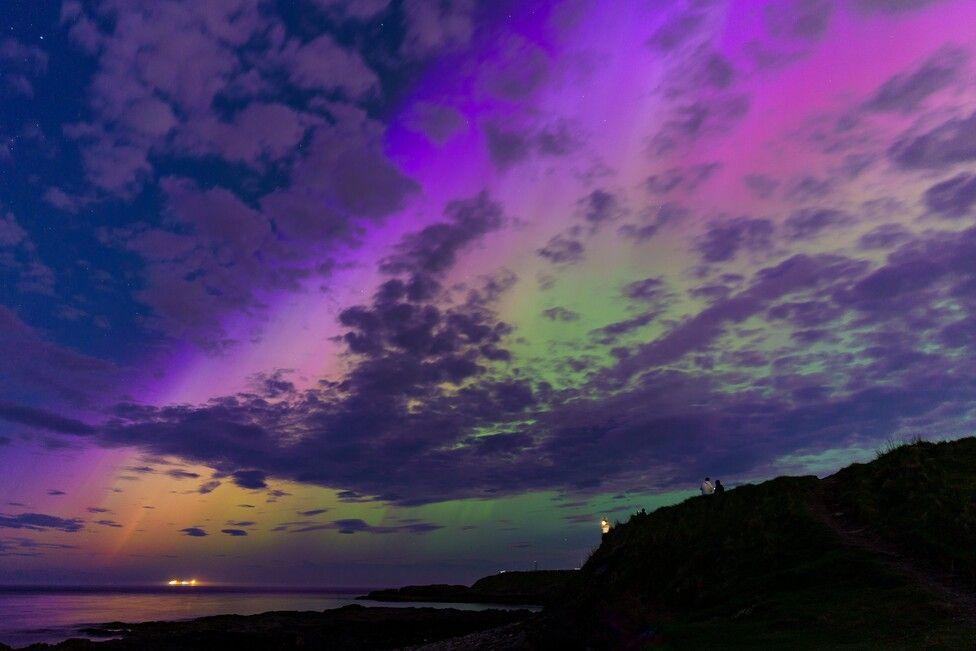
"Apparently this was the strongest solar storm passing the earth from the last 20 years and the colours were striking," said Jael Ocana. "I feel very grateful for witnessing this beautiful sky."
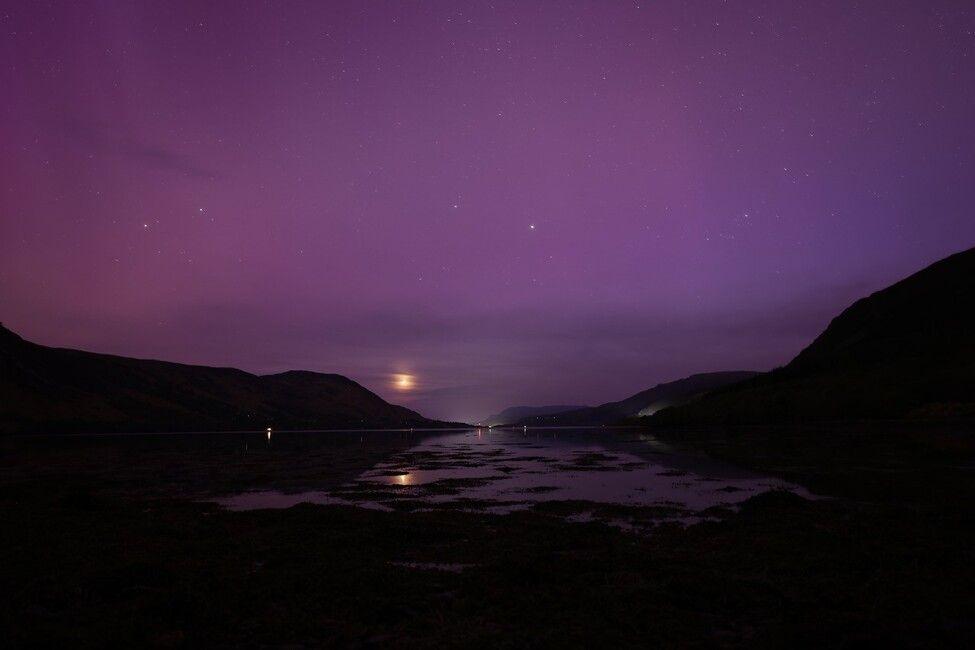
The lights were slightly toned down in Lochend just outside of Ullapool. Snapped by Rob Bradley.
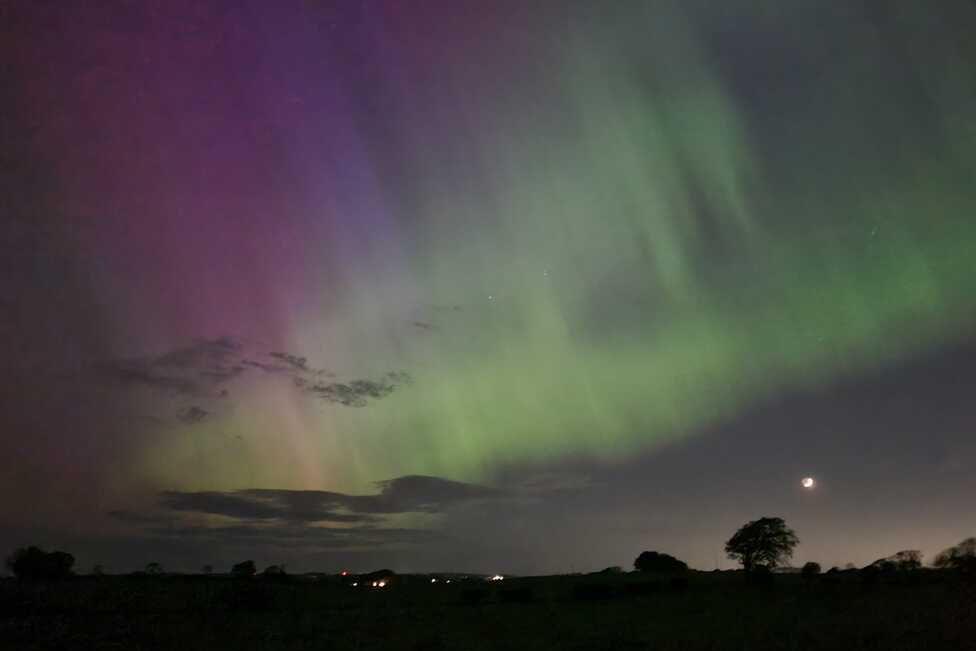
David Hampson spotted the lights in East Kilbride.
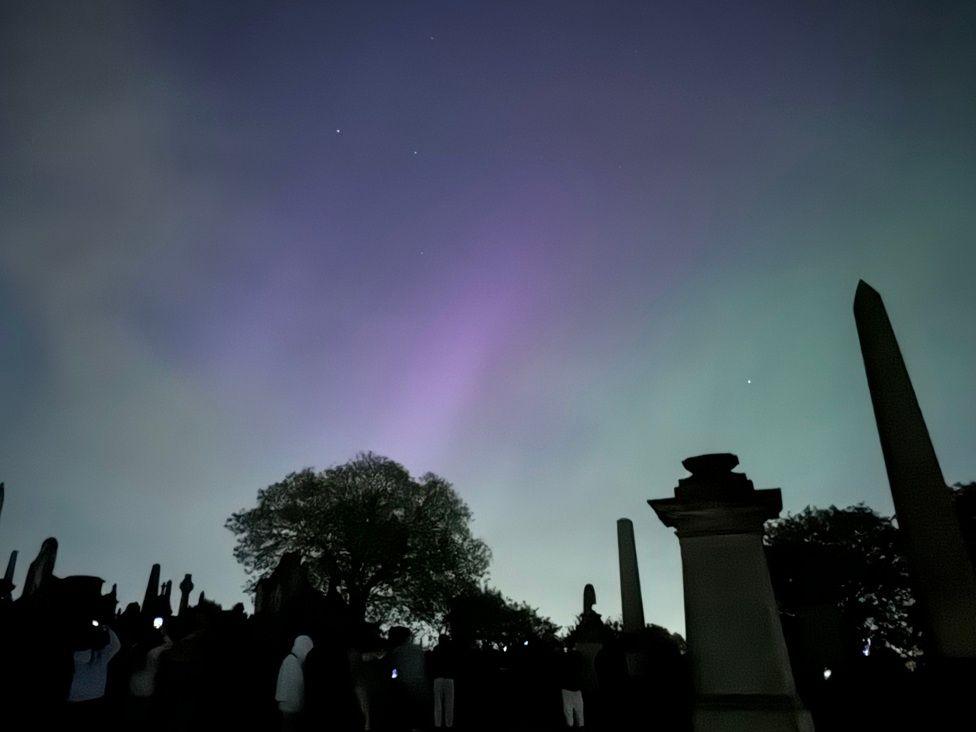
The aurora backlit the tombstones at the Glasgow Necropolis on Friday night. Taken by Dhruv Darji.
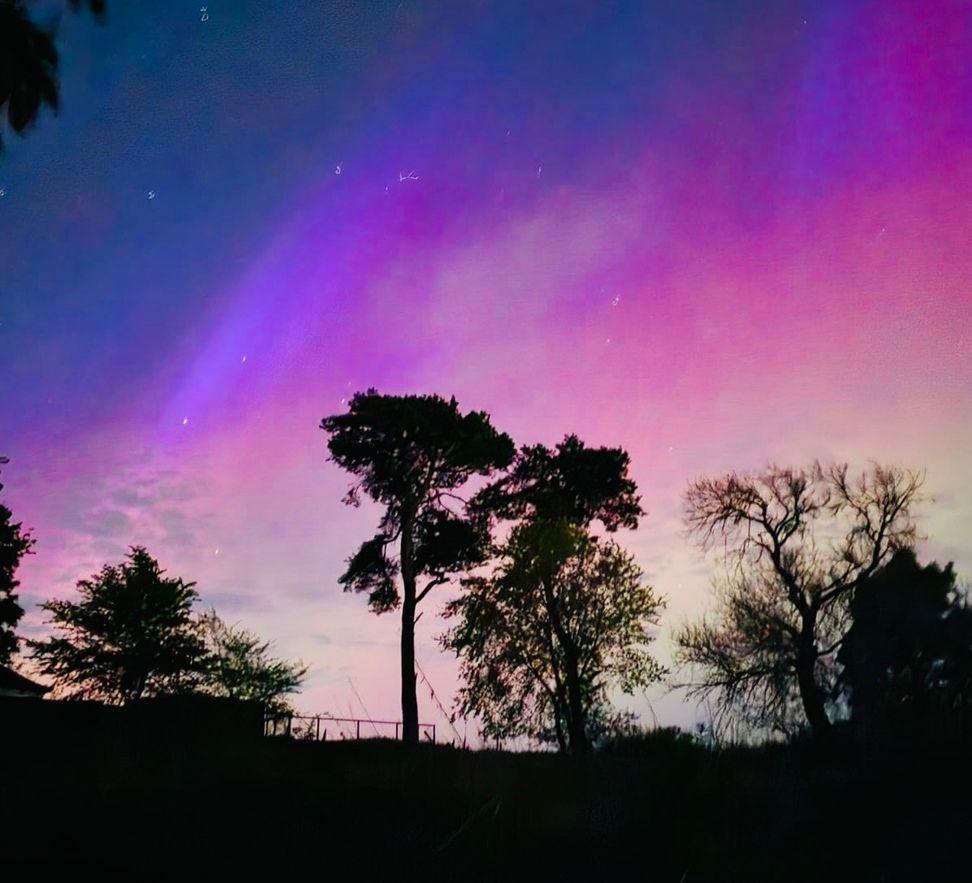
Janice Peggie took this shot from Markinch in Fife.
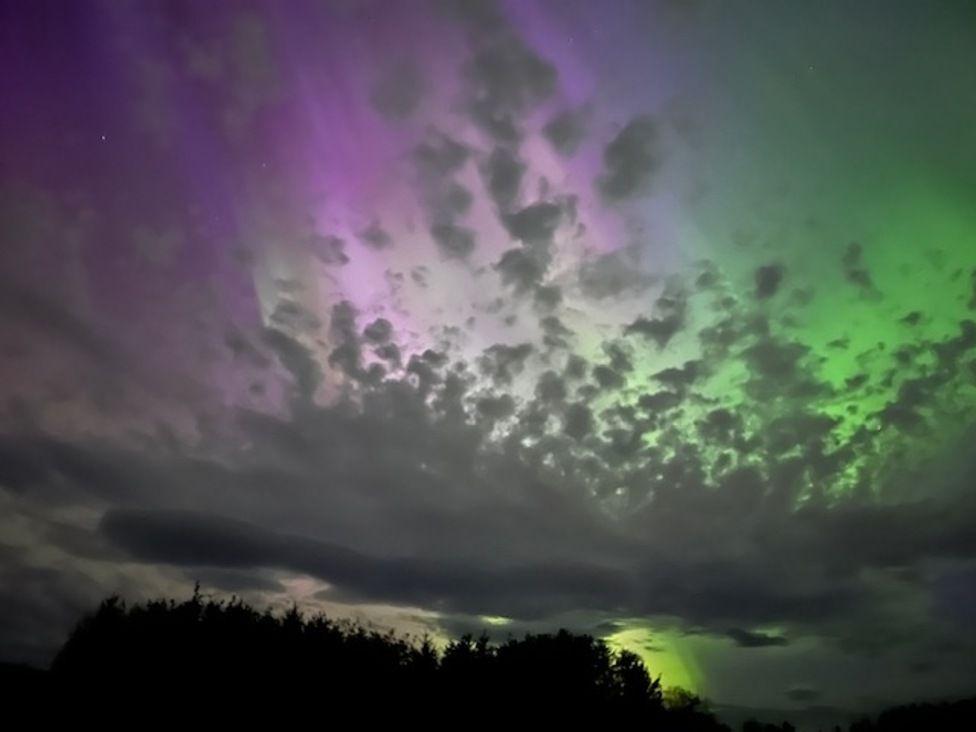
Clouds partially blocked the rare sight in Cookney, Aberdeenshire. Taken by Emma Lester-Smith.
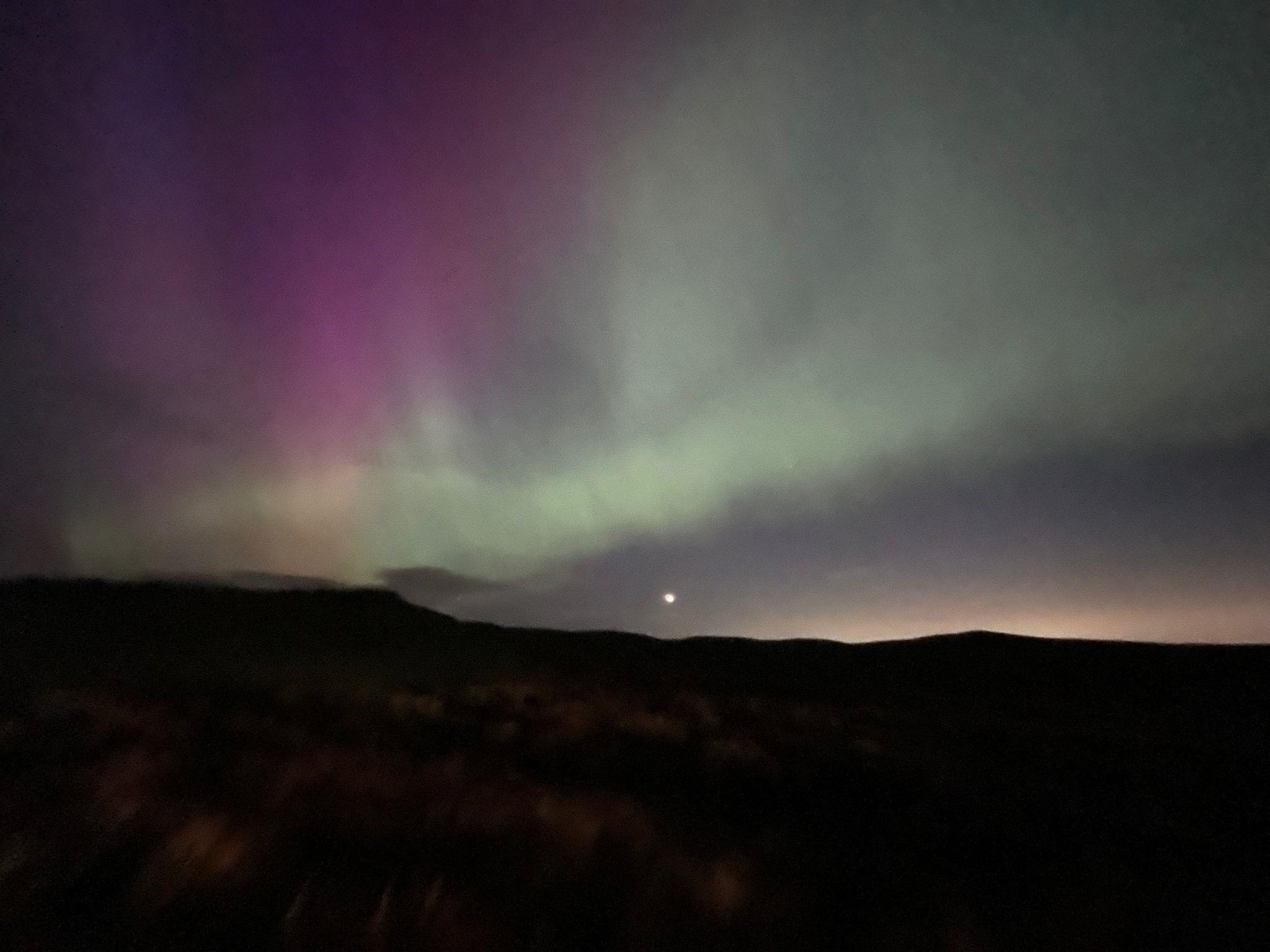
Hundreds of cars lined the roads around Whitelee Windfarm at midnight to watch the Northern Lights.
Related topics
- Published11 May 2024
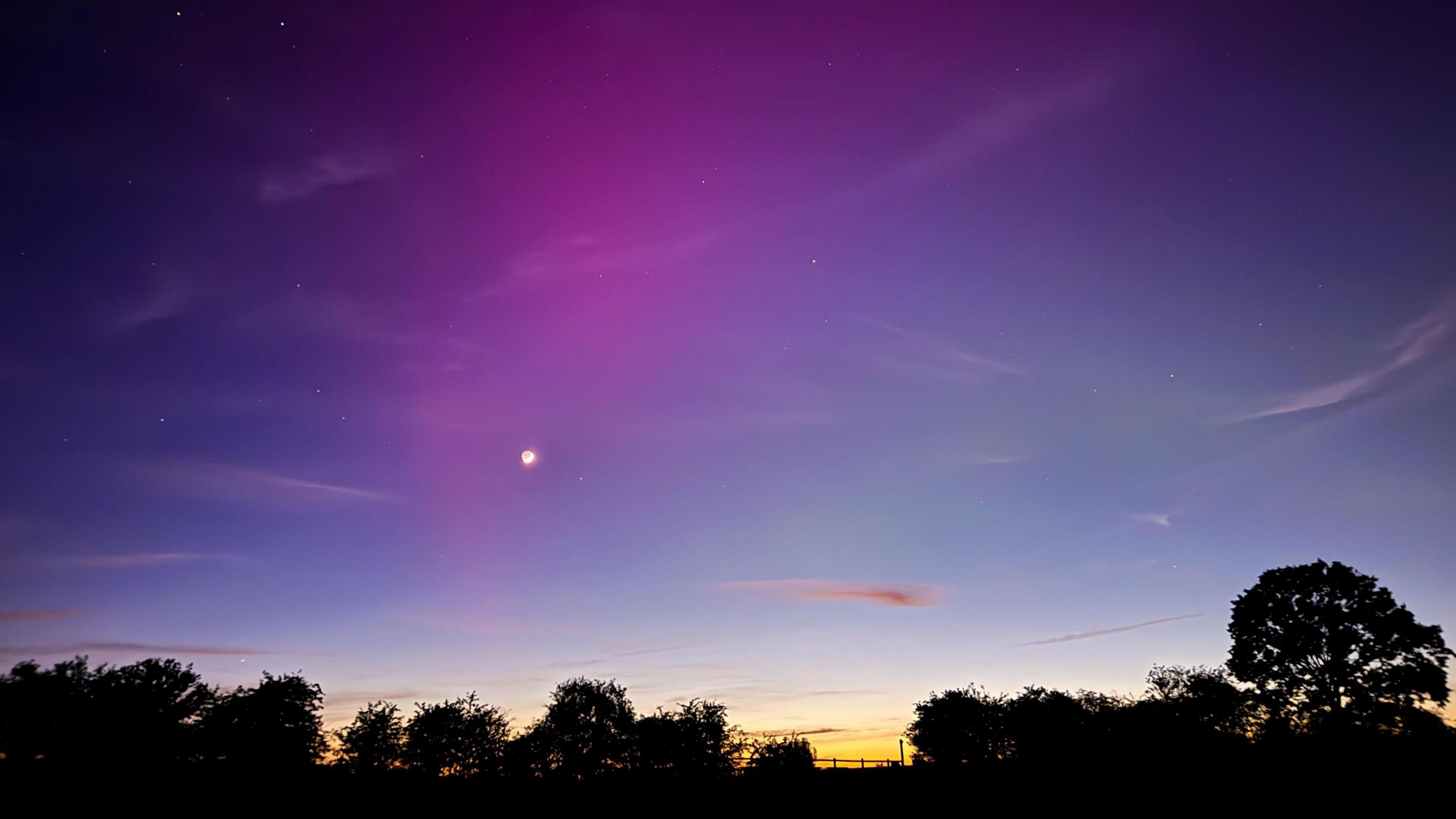
- Published2 January
